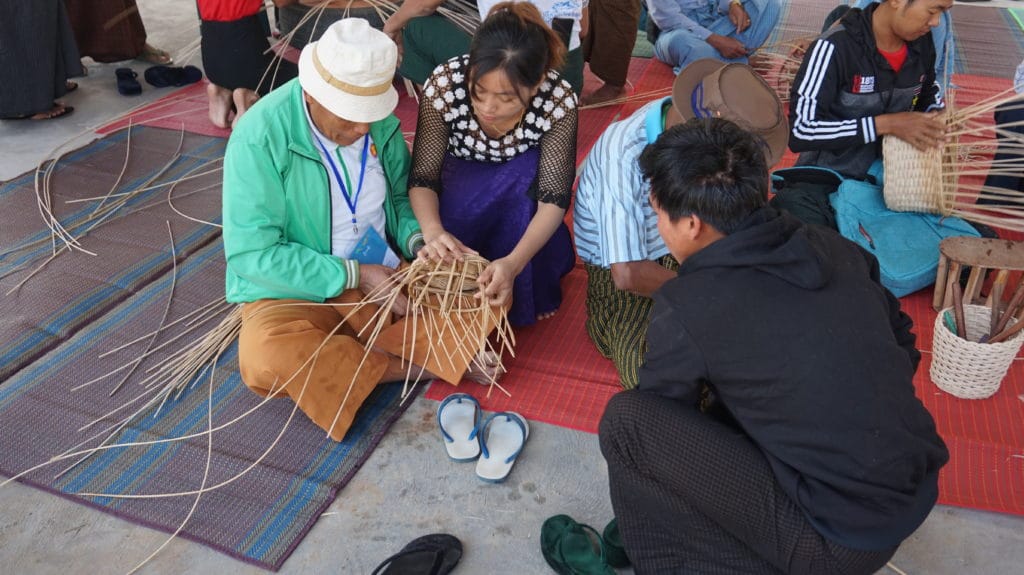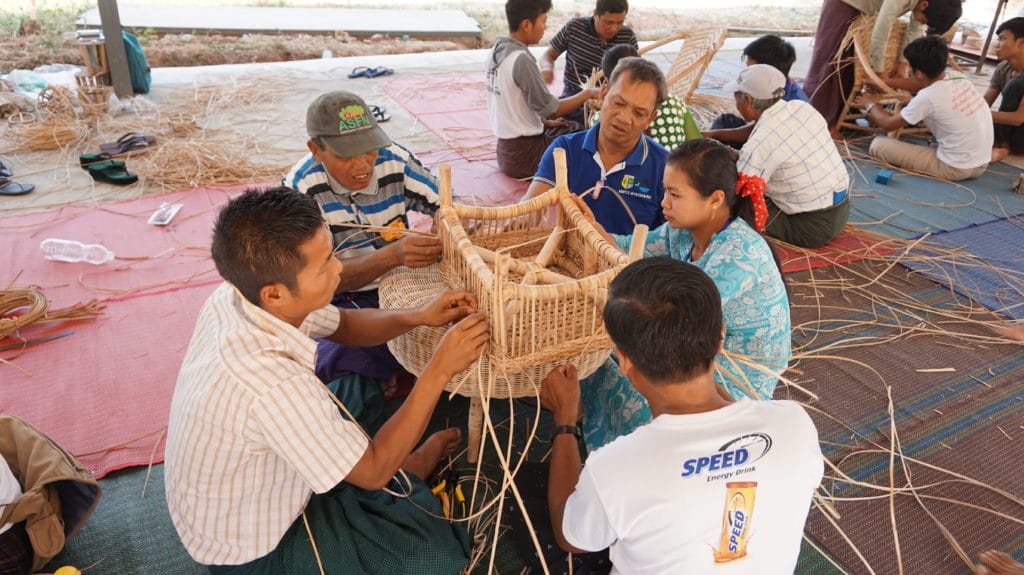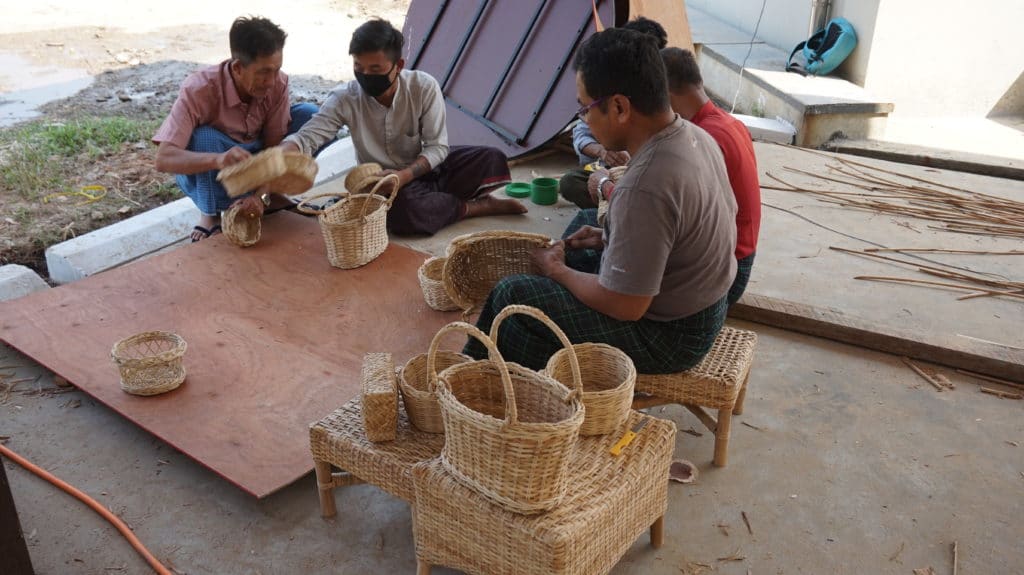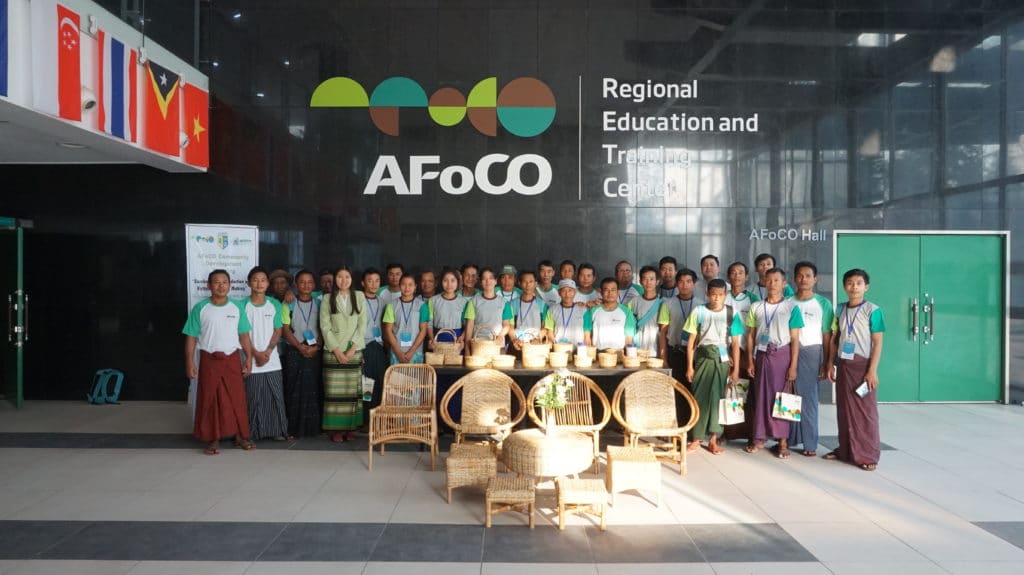25-31 January 2020, AFoCO RETC, Myanmar
This year’s community development training program kicked off with a local livelihood development course on “Bamboo-shoot production and Rattan furniture-making training” was held from 25 to 31 January 2020 at the AFoCO Regional Education and Training Center (RETC).
In Myanmar, 70% of people living in rural areas are highly dependent on forests, forest products as well as non-timber forest products to meet their basic needs and sustain their livelihoods. In the areas with abundant raw rattan materials, local communities will be able to make profits from the manufacturing the rattan furniture and handicrafts in small and medium enterprises. This will contribute greatly towards improving livelihoods.
The livelihood development training was organized with the aim of 1) training local people in making handicrafts, furniture, and other products from non-timber forest products; and 2) enhancing the development of community forestry enterprises to generate alternative incomes for local people by increasing the market accessibility of community forestry products.
Trainers from Myanmar’s Forest Department gave lectures on bamboo-shoot harvesting techniques, processing of bamboo-shoot based foodstuffs such as pickled bamboo-shoots, basic facts on bamboo plantation establishment for bamboo-shoot production, and methods of preserving rattan furniture. Trainees learned both theoretical and practical knowledge on rattan furniture making during the hands-on practice sessions. On the last day of the training, trainees embarked on a study tour to rattan furniture and handicraft manufacturers in the region to learn how to process raw materials to create finished products and learn more about market trends and demands for rattan furniture.
AFoCO prioritizes local livelihood development and community-based small enterprise development. Community development trainings are organized regularly for local people to improve their knowledge and skills in making handicrafts, wood products, and furniture. These courses aim to help local communities explore alternative livelihoods by producing non-timber forest products, and discourage the unsustainable use of forest resources.





